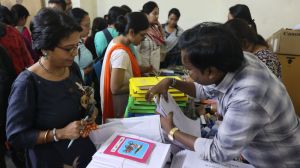ATF to be deregulated by Mar
NEW DELHI, FEB 2: The government on Friday announced that aviation turbine fuel (ATF) pricing would be deregulated and will be priced at i...

NEW DELHI, FEB 2: The government on Friday announced that aviation turbine fuel (ATF) pricing would be deregulated and will be priced at import parity by March 31, this year. Speaking to reporters on Friday, Union petroleum minister Ram Naik said the government would remove ATF from the administered pricing mechanism (APM) by the end of the current fiscal. He, however, ruled out any advancement in the dismantling of APM for other petroleum products from the earlier announced date of March 31, 2002.The minister also informed that Oil and Natural Gas Corporation’s (ONGC) Videsh Ltd, the overseas subsidiary of ONGC, will sign a $1.7 billion deal with Russian national oil company, Rosneft for taking 20 per cent stake in Russian Far East oil and gas field Sakhalin-I in Mosocow on February 10.
Naik said the deal, which was to be signed on Friday, has been postponed to February 10 as the Russian government had requested for more time to get the decision ratified. The deal from the Indian side would be signed by Naik and OVL managing director Atul Chandra.
According to Naik, while ATF would be decontrolled by this March, the customs duty on import of crude oil, was being brought down and that on petroleum products was being rationalised.
Naik said though ATF had a small subsidy component when the prices were last hiked in September 2000, it is presently near import parity. APM will be phased out by March 31, 2002 by gradually doing away with subsidies in the consumer prices of petroleum products and rationalising customs and excise duty structure,†Naik said.
The minister said from 2002, subsidy at the rate of only 33.3 per cent of the price of kerosene and 15 per cent of LPG for domestic use would remain to be provided through the central budget, and the price of diesel would be linked to import parity price.
Price of crude oil and refinery gate prices of controlled petroleum products were being determined on the basis of import parity prices since April 1998 and prices of all other products except petrol, diesel, ATF, cooking gas and kerosene for public distribution purposes have been decontrolled. “Parallel marketing of commodities for mass consumption, namely kerosene and LPG, by private entrepreneurs was allowed in 1993. Marketing rights for transportation fuels to private sector would be given to companies which had invested or proposes to invest Rs 2,000 crore in oil projects,†he added.
Photos



- 01
- 02
- 03
- 04
- 05




























